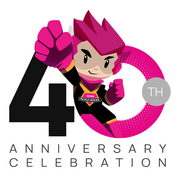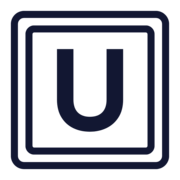
Best HR Management Software 2026
HR management software centralizes and automates core HR functions from recruitment and onboarding to payroll and performance management. These platforms integrate data and workflows to optimize the employee lifecycle and enhance workforce productivity. Modern HR suites offer advanced analytics and self-service portals to streamline operations. Discover different user reviews and comparisons to find the best HR management software for your organization.
We’ve collected videos, features, and capabilities below. Take me there.
All Products
Videos for HR Management
Learn More about HR Management Software
What is HR Management?
HR Management software helps to manage to facilitate human resources functions and tasks. These tasks are wide-ranging and include the following: payroll, personnel information management, onboarding, recruiting, talent management, performance management, learning management, succession planning, workforce management, and employee engagement
However, not all HR management software is the same, and as the HR field has grown over the past several decades, many new terms and philosophies have come into play. The most important are core HR, strategic HR, Human Capital Management, and People Ops.
Core HR
Core HR, also known as administrative HR, is the set of fundamental administrative tasks that are needed to employ people. Typically, this refers to payroll, personnel information management, and onboarding. It can also include functions typically associated with these. For example, benefits administration is often a part of core HR due to its association with payroll.
As its name suggests, core HR is core to HR management packages. Every package will cover these essential functions. In fact, many payroll packages cover the functions without being classified as HR management.
Strategic HR
Strategic HR is a loosely defined term. It generally refers to several HR-related activities that can help improve the quality of the labor force. This includes recruiting, talent management, performance management, learning management, and succession planning.
Not every software package will have all of these functions. In fact, many of these functions will be sold as add-ons to or modules for a core HR package. This allows businesses to pick and choose the areas of HR where they want to focus their efforts.
Human Capital Management (HCM)
Human capital management aims to maximize the value of a company’s labor force. This is achieved through a strong foundation in core and strategic HR tasks, as well as many workforce management functions.
Many HCMs use the data obtained from these core functions to provide actionable information to decision-makers. This data can be used for many purposes, from identifying unproductive business units to identifying high-performing employees. This insight and visibility allows leaders to make precise decisions instead of overly broad ones.
People Ops
People Ops is a newer HR philosophy focusing on enabling employees to be their most productive. While Human Capital Management seeks to identify and enable high performance, People Ops aims to unlock employee performance. Philosophically, there is an emphasis on treating employees as people instead of capital or assets. As such, People Ops will focus on employee engagement and corporate wellness.
It is important to understand that while People Ops and Human Capital Management entail different approaches, they are built on the same or very similar tools. Many HCM software packages will provide all the information needed to implement a People Ops program. The difference is in how the information is used.
Due to the differences in implementation, Human Capital Management and People Ops often thrive in different industries. Human Capital Management is more often seen in industries with a higher fraction of hourly workers, higher turnovers, and more easily measured KPIs. In contrast, People Ops is often seen in industries requiring creativity and innovation.
HR Management Features
Many products in HR Management have the following features:
Human Resource Information System (HRIS)
- Employee personal information
- Employment history
- Job profiles
- Workflow for transfers
- Promotions
- Pay raises
- Benefits information, etc.
Payroll Management
- Calculation of employee pay and benefits
- Managing direct deposit
- Salary revisions
- Payroll tracking
Employee Self Service
- Access pay records
- Access benefits information
- Update personal information
- View company policies
Recruiting and Applicant Tracking
- Job requisition
- Job site posting
- Applicant tracking
- Candidate filtering tools
Strategic HR Functions
- Goal setting and performance tracking
- Performance management
- Succession planning
- Learning and training management
- Employee engagement
HR Management Software Comparison
To compare different HR management systems, you will likely want to consider these facets of the software:
- Target Size: Many HR management systems are tailored to specific company sizes. For instance, some vendors focus on SMBs, while others tailor their HR management software to enterprises. Look for a product with proven users in your size range, as well as a demonstrated ability to scale up if you want to accommodate future growth.
- Core HR vs. Strategic functions: Many HR management systems have expanded to include strategic HR functions, like talent management, in addition to the core HR processes of payroll, personnel tracking, and employee recordkeeping. However, not all HR management vendors have expanded, or expanded to the same breadth, as the large HCMs. You may also not need to use, or pay for, all of the strategic HR functions if they’re not relevant to your industry or size.
- Reporting: Reporting is an increasingly standard aspect of many HR professionals’ lives. Feature ratings can give some indication of a product’s reporting capabilities in general. Reviews can also contextualize whether a product’s strengths or weaknesses in reporting comes from its customizability, exportability, or visualizations, so you can focus on the reporting aspects most relevant to you.
More Resources
- HR Software Pricing and Software Cost Guide for 2025
- Do More with Less: How Generative AI is Revolutionizing HR Practices
- Striking the Balance: Human-Centered HR Tech Selection in an AI Era
- Top 10 HR Management Software for Enterprise Businesses in 2024
- Established vs. Emerging Technology – What’s Right for Your HR Department?
TrustRadius Methodology
TrustRadius category pages are created by the TrustRadius Research Team. The mission of the TrustRadius Research Team is to ensure that our review platform is the most useful, trustworthy, high-quality information source for technology buyers. We seek to help technology buyers make more informed decisions with less stress.
We do this by:
- Understanding and accurately covering hundreds of software categories, including category descriptions and product details.
- Ensuring the authenticity and quality of the reviews and ratings we collect and publish. Read more about our reviews, including how we authenticate and source reviews here.
- Researching the technology buying process, recommending new site features to support the buyers’ journey, and advising tech vendors on how to earn the trust of their buyers.
We know that buyers on our site are using reviews—trusted feedback from their peers—to make important decisions, which is why we’ve taken steps to ensure that the scores you see on this category page reflect the true sentiment of software users. Read more about TrustRadius scoring, category sort methodology, and more here.
HR Management FAQs
What is HR Management software?
What is Cloud HR software?
What are the best HR Management platforms?
The Top Rated HR Management software products are:






















